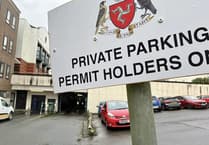Figures released by the Department for Enterprise (DfE) have revealed a significant fall in accommodation occupancy rates on the Isle of Man for 2024.
The data, shared in response to a written question from Onchan MHK Rob Callister, shows a notable decline in occupancy across serviced accommodation, including hotels, guest houses, and B&Bs, particularly in peak months such as July and August.
In July 2024, serviced accommodation occupancy stood at just 62%, down from 87% in the same month the previous year.
In August, the rate dropped further to 60%, compared to 83% in 2023.
The figures also show that while self-catering accommodation has fared better, maintaining an 82% occupancy rate in August both this year and last, the serviced sector, which includes the majority of hotels, has struggled to maintain previous levels.
This comes just over a week after Enterprise Minister Tim Johnston issued a public apology following controversial comments made in Tynwald during a debate on the introduction of a proposed tourism levy.
During the sitting, Mr Johnston claimed: ‘Our hotels are full all season and that’s why we are building more, that’s why there’s more hotels in planning.’
His remarks came as he attempted to counter Mr Callister’s opposition to the levy and were met with disbelief by some in the hospitality sector, who say the reality is quite different.
Several hoteliers voiced concern, stating that the industry continues to face significant challenges, with bookings falling short of expectations during what should be the busiest time of year.
Following mounting criticism, Mr Johnston issued a written apology, admitting the statement was ‘a misstatement and not accurate, particularly for all hotel operators.’ He added:
‘Whilst it was not my intention to do so, I accept my words have caused concern with some businesses and have taken the opportunity to apologise.’
According to DfE’s most recent data, in March 2024, there were 17 hotels, 29 guest houses, 41 B&Bs and 454 self-catering units registered on the island.
The figures were part of a broader question tabled by Mr Callister, who has been a vocal critic of the tourism levy proposal.
Speaking in Tynwald, Mr Callister said the island had not reached ‘true capacity in respect of tourism throughout the year’ and argued that the government’s focus should be on encouraging longer visits and off-peak travel, not introducing new charges.
Of the 329,613 visitors recorded in 2024, 21,679 were cruise ship day-trippers, exempt from the proposed levy, and only around 38% of the remaining tourists visited for holidays.
A motion for a ‘Biosphere levy’ on visitor accommodation had been tabled by Ramsey MHK Lawrie Hooper, with the idea of reinvesting funds into the island’s visitor economy.
However, Mr Johnston said his department was already exploring potential pilot schemes.
Despite the fall in occupancy, Mr Johnston maintained: ‘I remain encouraged by the growth in visitor numbers in recent years… but I also recognise that the sector continues to face challenges.’
.jpeg?trim=0,0,0,0&width=752&height=423&crop=752:423)


-(2).jpeg?width=209&height=140&crop=209:145,smart&quality=75)
.jpeg?width=209&height=140&crop=209:145,smart&quality=75)